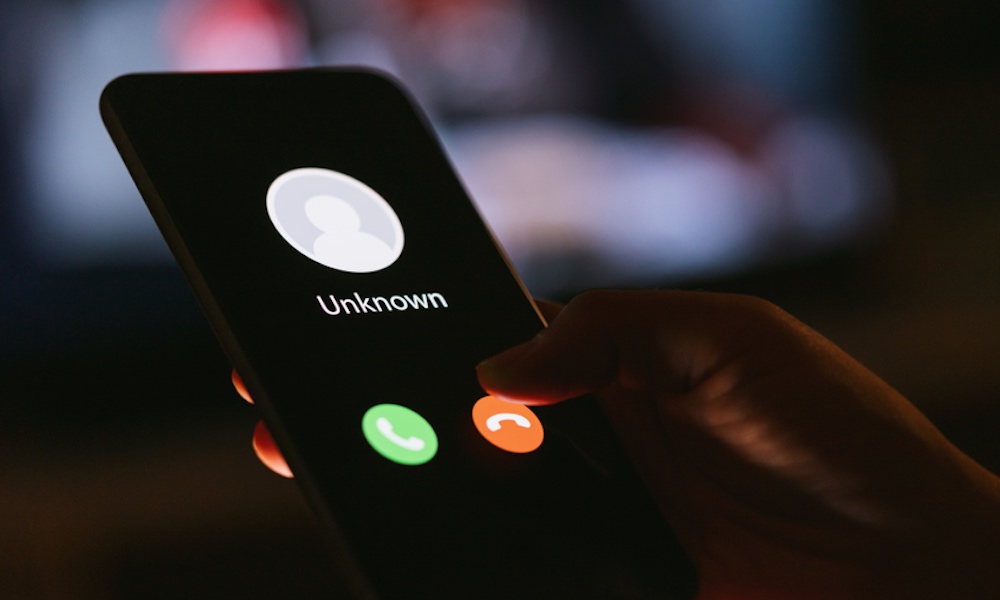New FCC Rules Now Limit All Robocalls – Not Just Telemarketers
 Credit: Rclassen / Shutterstock
Credit: Rclassen / ShutterstockToggle Dark Mode
The Federal Communications Commission (FCC) is finishing off 2020 by increasing its efforts to fight robocalls, not only expanding its guidelines to cover a wider variety of commercial calls, but also requiring that phone companies actively participate in the process by policing their voice networks.
The FCC announced the new rules (via Engadget), in a move that steps up its game by blocking even more unwanted calls being made to residential phones.
For example, a caller doesn’t have to be considered a “telemarketer” to run afoul of the FCC’s rules; non-commercial, commercial, and tax-exempt nonprofit organizations will no longer be exempt from the robocall restrictions — they’re now permitted to make no more than three calls to any residential phone within any consecutive 30-day period.
These non-telemarketing organizations must also allow consumers to opt-out of receiving these calls — something that wasn’t required under the previous rules.
Americans are sick and tired of unwanted and illegal robocalls, and today’s separate actions are like a one-two punch to ward them off. Today, we are putting much needed limitations on robocalls to our homes, and taking additional steps regarding call blocking that will yield significant improvements for consumers.
FCC Chairman Ajit Pai
More significantly, the FCC is also now requiring voice service providers to cooperate in policing their networks to ensure that they’re not being used to transmit illegal robocalls. This not only means that your telephone company will now be held responsible for proactively blocking illegal robocalls when notified of them by the FCC, but will also be required to help the FCC and law enforcement officials in identifying the sources of illegal calls.
Under the new rules, the FCC has also expanded the “safe harbour” coverage for providers who engage in network-level blocking, effectively removing liability for those carriers who decide to proactively block robocalls, as long as they undertake the proper due diligence to make sure they’re only targeting calls that are “highly likely to be illegal,” and continuing to provide human oversight to ensure everything is working the way it’s supposed to be.
To provide more transparency for those organizations that are making legitimate robocalls and complying with the rules, the FCC is also requiring phone companies to immediately notify organizations when their calls are being blocked, as well as offering a way for subscribers to request a list of calls that have been blocked, and provide more timely updates on call blocking disputes when they occur.
Blocking Robocalls
Last year the FCC gave telephone providers the power to “aggressively” block robocalls, but didn’t specifically require them to do so. However, this move at least opened the door to carriers and phone manufacturers starting to embrace technology that they had previously been concerned were of questionable legality.
For example, AT&T began notifying Android users of verified calls last year, which could also be seen from the iPhone recent calls list, but not while the actual incoming call was coming in. T-Mobile implemented a similar program earlier this year, which it called “Scam Shield” to provide verification for incoming numbers, as well as free call blocking tools.
Meanwhile, iOS 14 added a new “Silence Junk Callers” feature that Verizon was quick to embrace, that provided a much more discriminating alternative to iOS 13’s Silence Unknown Callers feature, which simply blocked all unknown calls.
These technologies all use the SHAKEN/STIR authentication technology that U.S. carriers have put together to help identify spam callers, which basically confirmed that the caller ID shown on your iPhone is actually the number the call is coming from.
While these technologies stop spam robocalls, however, they don’t necessarily prevent you from being harassed by semi-legitimate telemarketers. In other words, as long as the number you’re seeing on your caller ID is correct, it will be allowed through in much the same way as any other call.
However, the FCC’s new rules are designed to ensure that even these calls can be blocked more proactively if you don’t want to receive them. The fact that the caller ID is legitimate and traceable ensures that both you and your phone provider will know where the call is actually coming from, and organizations that are making legitimate use of robocalls are required to remove you from their contacts lists on request, and will be held liable by the FCC should they refuse to do so — and the best part of the new rules is that this basically now applies to just about any organization who is calling you, whether they’re a telemarketer or not.






